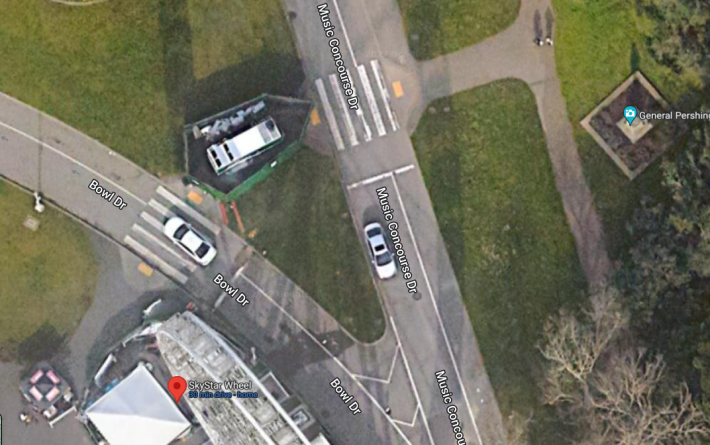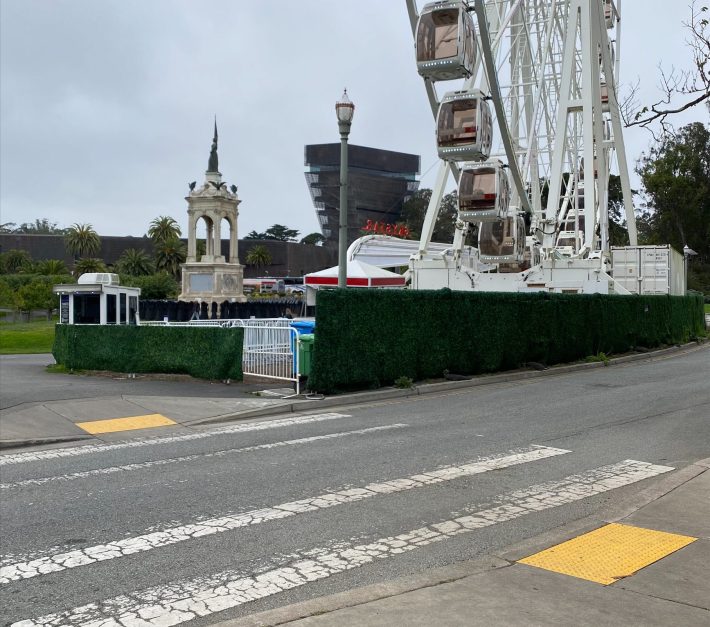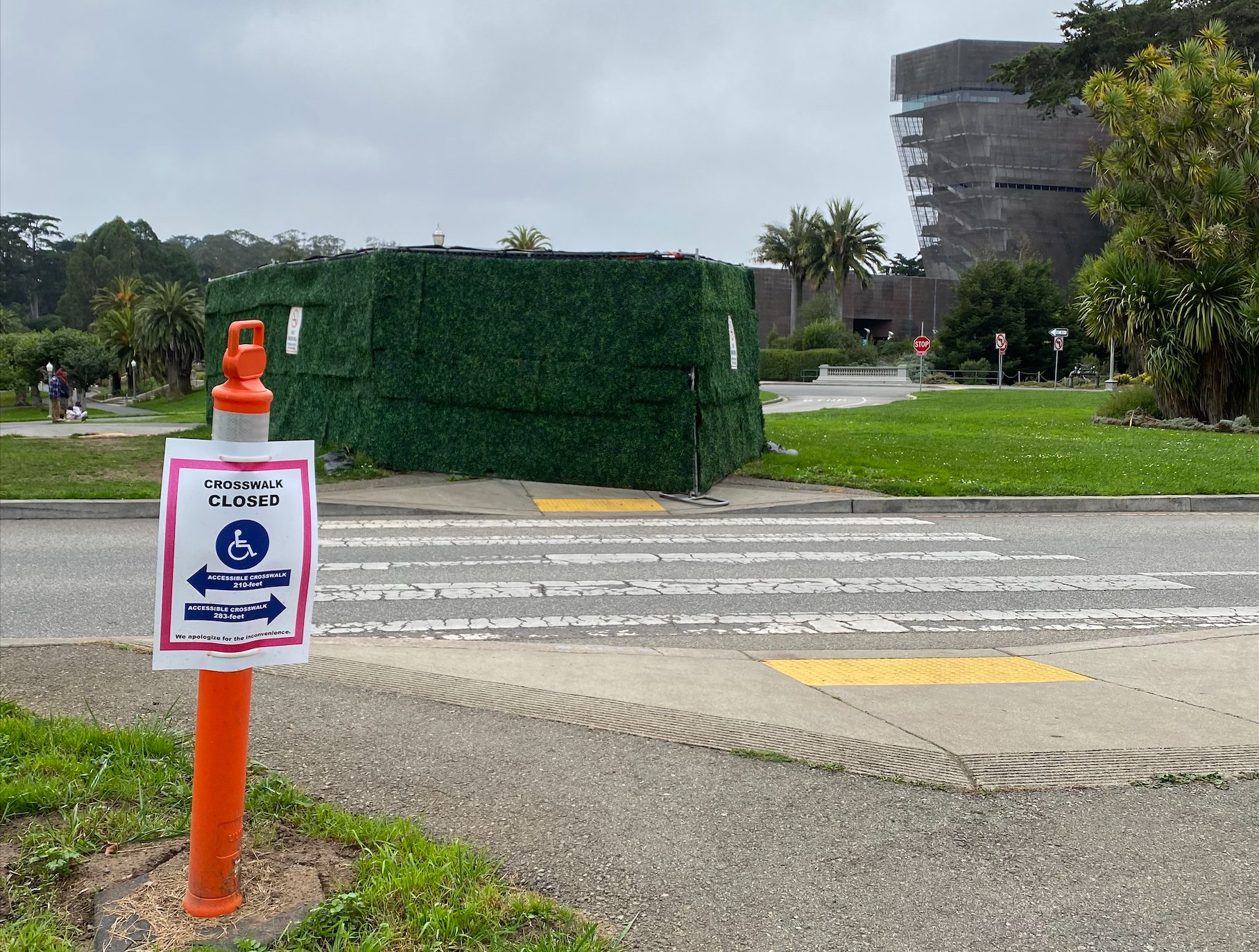Note: GJEL Accident Attorneys regularly sponsors coverage on Streetsblog San Francisco and Streetsblog California. Unless noted in the story, GJEL Accident Attorneys is not consulted for the content or editorial direction of the sponsored content.
Advocates for safe streets are calling out the San Francisco Recreation and Parks Department for blocking disabled ramps and an accessway in Golden Gate Park that connects across Music Concourse Drive and Bowl Drive.
As explained in this Twitter post, the culprit is the generator that powers the park's Ferris wheel:
@RecParkSF this has to change NOW! What in the actual fuck?!?! Look at this person in a mobility device forced to try to navigate through a road shared with buses and cars around a perfectly good ADA access ramp blocked by this generator for 🎡 . You’ve had time to figure it out pic.twitter.com/DNlE5EqpRt
— FS Studio, aka al (@fauvescraper) October 12, 2022
"Looking at Google maps, the way they placed it, it seems like they didn't really think it through," said Pi Ra, Transit Justice Director with Senior and Disability Action, in an interview with Streetsblog. As seen in the satellite view below, the generator, placed between the two zebra-stripe crosswalks, completely blocks a pedestrian route from the J.F.K. Promenade to the Music Concourse and museums:

Technically, blocking these ramps is legal because, as shown in the lead image and below, there's a detour. "There is an alternate Americans with Disabilities Act (ADA) accessible crosswalk about 200 feet south of the closed crosswalk, just at Bowl and Music Concourse drives," wrote Daniel Montes, Rec and Park communications manager, in an email to Streetsblog. "The placement was ultimately chosen as it met specific criteria, including maintaining the minimum 20-foot distance between the generator and any structures, per San Francisco Fire Department requirements. Also, the location reduces impact to the landscaping and its visibility since placing the generator on the lawn would block irrigation."
Montes also provided a photo of the alternate route:

"The site has been reviewed and approved by the Mayor’s Office of Disability," he added.
That may be so, but advocates for the disabled describe this as ticking the ADA checkbox instead of truly considering the needs of the park's most vulnerable visitors.
"I know that when I worked on the 'Getting to the Curb' Report with Walk SF, we recommended that the City should provide ramps along curbside bike lanes (with floating parking) at least every 100 feet. So having to travel 200 feet sounds burdensome to me," wrote Cathy DeLuca, a transportation consultant and advocate for seniors and the disabled.
Note that's 200 feet to the alternate crosswalk and 200 feet to get back.
In Streetsblog's view, there's a reason that ramp and route is there. For an able-bodied person, a potentially 400-foot round-trip diversion may not be a big deal, but for someone who struggles with mobility issues, every extra foot can be a burden. Streetsblog also chaffed at one of the reasons given for placing the generator there: "The location helps reduce people crossing at Bowl Drive, eliminating concerns about congestion and vehicle traffic," wrote Montes.
So, basically, the city approved diverting people in wheel chairs to reduce delays to motorists. Forcing people in wheel chairs to detour for the sake of saving some grass or to avoid a minor inconvenience to drivers seems inappropriate and callous.
If they didn't want to kill some grass, it's perfectly possible to put the generator on Bowl or another of the roadways, detouring motorists instead of people in wheel chairs. Motorists also have the option of using the tunnels under the Music Concourse at Fulton and MLK to access the area.
Instead, the park put all the burden on people who need wheelchair ramps to get around. "Bottom line, it's accessible, but it's not practical," said Pi Ra. "Too much of the city goes by the ADA law, which is a minimum. We can do better than that."






